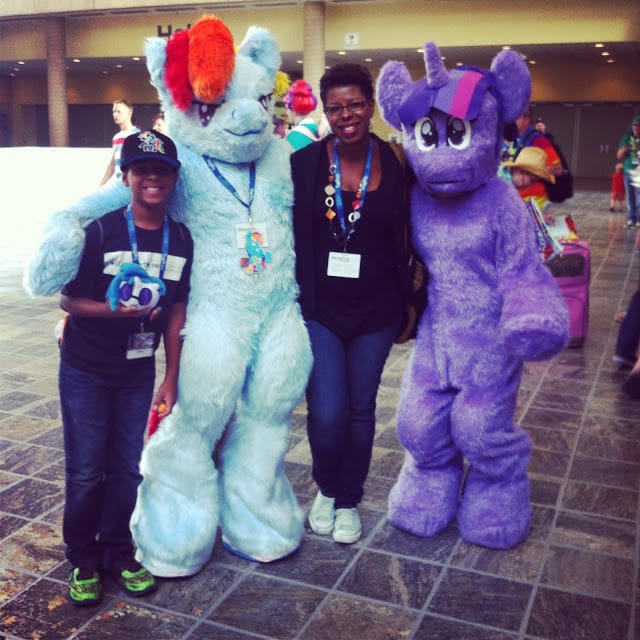“Nothing From Nothing”: Succession, King Lear, and the Complex World of Morality and Meaning
HBO’s Succession has entered its final season. The mega-popular comedic drama follows the super-1-percent lives of Logan Roy (Brian Cox)- founder of global media conglomerate Waystar RoyCo- and his three children, Kendall, Siobhan (“Shiv”), and Roman Roy (Jeremy Strong, Sarah Snook, and Kieran Culkin, respectively). After suffering a near-fatal stroke, Logan, the family patriarch, tries to determine whom he should pass his company, assets, and wealth onto when he dies. As you may expect, it’s a cutthroat world where nearly everyone is brash, mean-spirited, and Machiavellian. Think Game of Thrones but in present-day New York City. The creator, Jesse Armstrong, and executive producers, Adam McKay, Will Ferrell, Frank Rich, and Kevin Messick, modeled the series on the Murdoch Family, but other parallels can be drawn to Donald Trump and the focus of this article- William Shakespeare’s King Lear.

In the play’s most recent production at the Shakespeare Theater Company in Washington D.C., Patrick Page stars as the eponymous lead, and Rosa Gilmore, Stephanie Jean Lane, and Callen Fu star as his three daughters- Goneril, Regan, and Cordelia (respectively). Lear, an aging monarch, wishes to divide his wealth and territories amongst his sons-in-law and comfortably live out the rest of his days. But first he seeks proclamations of love from his daughters. Easily swayed by flattery, Lear extends his good graces to his two oldest daughters- Goneril and Regan- when they shower him with blandishments, but denounces his youngest daughter, Cordelia, when she comes up empty. Lear then banishes his main advisor- the Earl of Kent (Shirine Babb)- when she intervenes on Cordelia’s behalf. Lear then begins his “retirement” with Goneril and Regan. Unbeknownst to him, though, they don’t have his best interests at heart. Slowly, the cold and callous pair of siblings strip their father of his retinue, his royal prestige, his wealth, his dignity, and eventually his sanity! Meanwhile, the now-banished Cordelia sets out to rescue him.
In a separate but parallel storyline, the Earl of Gloucester (Craig Wallace) contends with his two sons- Edmund (Julian Elijah Martinez) and Edgar (Matthew J. Harris). Edmund is a “bastard” (in the technical sense) who resents his social status and plots to steal his half-brother’s fortune. He frames Edgar for sedition, and Edgar ends up on the lam. With their hoodwinked father pursuing him, Edgar disguises himself as “poor Tom,” a dirty, mentally unsound vagrant. As the play progresses, the two narratives intertwine, the body count rises, and gloomy themes of madness, cruelty, and cosmic injustice take center stage!
There are some significant differences between Succession and King Lear. Unlike Logan Roy, Lear is far more insecure and gullible. He lacks Roy’s callous perspicuity even though he wishes to maintain his royal power and prestige. Lear’s two eldest children are also far crueler than Kendall, Siobhan, or Roman, and they are far more explicitly conniving. Lear succumbs to madness whereas Roy doesn’t, and while the world of King Lear is rife with brutal, deadly violence, Succession isn’t.
The most direct difference though is King Lear’s focus on nihilism. When Cordelia fails to speak up and express her love for her father, Lear reminds her that “nothing can come from nothing” (an exchange that later resurfaces between Lear and his Fool, played by Michael Milligan). Nihilism, derived from the Latin ‘nihil’ (meaning nothing), is the philosophical belief that life in inherently meaningless. Nihilism rejects moral and religious principles and maintains that the world exists without any specific purpose. Various writers and philosophers, including Friedrich Nietzche, Marquise de Sade, and Fyodor Dostoevsky, have explored the topic, and many people champion it as an effective approach to modern life.
It’s a difficult school of thought to maintain for very long, though, as it has no stable ground to rest upon. People may believe that they can create their own sense of meaning in the absence of anything outside of them, but if they discard meaning entirely, they aren’t left with joy and freedom. They’re left with anxiety, despair, and suffering. One could say, “I don’t care. It doesn’t matter. I just do what makes me happy.” But what happens when that person is struck with a serious illness or loses a loved one or grows wary of alcohol, cocaine, or recreational intimacy? What happens when all the transient pleasures disappear? They’re still stuck with all their meaningless, baseline suffering! Nihilism may provide something of a cool and fleeting “sugar high,” but one should only embrace it with caution. It’s not a healthy, long-term solution.
King Lear’s primary nihilistic moment occurs when Lear and his Fool wander a stormy English heath. Goneril and Regan have revealed their true colors- they don’t care about their father or his position as king. They strip him of his knights and dismiss him as a raving old man with a deteriorating mind. Now that his assets are theirs, they leave him to fend for himself, locking him out of their castle during a severe storm. The heavens rage with thunder and lightning, and Lear- shaking his fist- rages back:

“Blow, winds, and crack your cheeks! Rage! Blow! You cataracts and hurricanoes, spout till you have drencht our steeples, drown’d the cocks [roosters]…Rumble thy bellyful! Spit, fire! Spout, rain! Nor rain, wind, thunder, fire, are my daughters: I tax not you, you elements, with your unkindness; I never gave you kingdom, call’d you children, you owe me no subscription…”
King Lear, Act III, Scene 2
Clearly Lear has lost his sanity, but his reasoning at some level is not altogether incoherent or irrational.
That line between manmade and natural catastrophes can be easily blurred. We saw it with everything from Hurricane Katrina to the Covid-19 pandemic. But the sense of meaninglessness and confusion and indifference and injustice we experience more often occurs at the level of other people than it does at the level of the cosmos. Lear doesn’t rage at the pitiless indifference of the clouds and precipitation so much as he does at his wicked daughters. When those we love and trust and invest all our animating energy (i.e., spirit) into betray us, nothing can more easily fill us with a sense of meaninglessness! Lear earlier punctuates this when he reminds Goneril: “how sharper it is than a serpent’s tooth to have a thankless child!” (Act I, Scene 4) Gloucester- [SPOILER ALERT] blinded by his enemies who’ve literally gouged out his eyes- later remarks: “As flies to wanton boys, we are to the gods. They kill us for sport,” (Act IV, Scene 1) further highlighting that unpunished cruelty is the worst form of “nothingness.”
The other main difference is King Lear’s focus on madness/insanity. Logan Roy is tough and cold and unpredictable but still of a sound mind. Lear, on the other hand, isn’t. When he loses trust with two of his children, he quickly loses his sanity. Many psychiatrists have speculated that the mental or neurological illness Lear suffers from is psychosis or paranoid schizophrenia. Others say Alzheimer’s or Intermittent Explosive Disorder. Dementia is the most common “diagnosis” (so to speak, as Lear is fictional). According to WebMD, dementia is the “name for a group of brain disorders that make it hard to remember, think clearly, make decisions, or even control your emotions.”1 It affects memory, communication and speech, reasoning and judgment, and visual perception.1 Vascular dementia, which is the most common type, affects one in ten patients and causes progressive damage to the brain due to blood vessel damage or blockages that lead to mini-strokes or brain bleeding.1 Other variations include Dementia with Lewy Bodies (which occur due to abnormal clumps of alpha-synuclein proteins), mixed and frontotemporal dementia, and Creutzfeldt-Jakob disease (dementia caused by protein infections, a.k.a. “prions”).1 Unlike Alzheimer’s, dementia’s first symptom isn’t generally memory loss; it’s difficulty with planning and judgment.1

Was Lear suffering from dementia? Possibly. Heartbreak and betrayal are other explanations. The way in which traumatic experiences affect individuals is not always easy to estimate or predict; especially when said trauma occurs at the hands of those whom one has loved and trusted! Both he and Gloucester end up in their own states of blindness (literal and proverbial) …crawling steadily towards the grave… grasping desperately for what and whom they can. The natural progression of old age, the fear of the unknown, and the absence of a loving, guiding hand throughout it can easily produce a state of severe madness and anxiety.
It’s also vital to bear in mind that, unlike Succession, King Lear is a tragedy, not a comedic drama. The Roy children and the rest are selfish, narcissistic, and petty, but their vanity and vices can be viewed comedically; the fact that they are so obliviously terrible is what makes them watchable. The Lear villains, on the other hand, are not comedic. They’re selfish and conniving and opportunistic, but their personalities represent a deeper and more serious and authentic form of evil! It isn’t simply a matter of job losses or legal fiascos. King Lear’s villains kill, betray, and maim others.
Succession and King Lear are different in many ways but also critically similar. Both deal with aging patriarchs who must contend with their own mortality and what they’ll leave for their children. Both deal with the morally questionable ways in which successors and those they consort with treat their aging parents. And both deal with what happens when immense wealth and influence are on the line. Who’ll act truthfully and honorably, and who will succumb to selfishness, cruelty, and greed?!
SOURCES
[1] What Is the Difference Between Alzheimer’s and Dementia? (webmd.com)
Discover more from DG Speaks
Subscribe to get the latest posts sent to your email.





